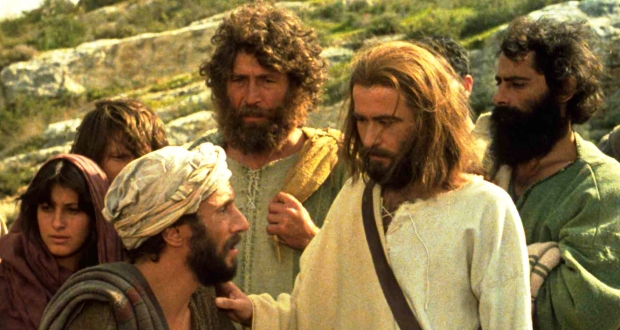I Am The Good Shepherd – I Lay Down My Life For My Sheep

(By Fr. Dexter Brereton)
The hired man runs away when he sees the wolf coming
[simpleazon-image align=”left” asin=”B005J6U77Q” locale=”us” height=”375″ src=”http://ecx.images-amazon.com/images/I/51OPy15m0iL.jpg” width=”375″]Several years ago, King Austin, one of our great Trinidadian calypsonians performed a memorable work entitled “Who will guard the guards” in which like many today, he wondered aloud about the falling standards among those charged with the protection of the society.
Using our Treasuries we have made them strong
Creating authorities as we move along
But knowing power develops and absolute power corrupts
Question for the lads – Who going to guard these guards?
The royalties and the governments, look, the many houses of parliaments
The cassar of the guards – Who going to guard these guards? Yes.
Question for the fanatics advocating politics
In the face of failing standards – Who going to guard these guards?From “Who will guard the guards” Performed by King Austin
As we celebrate the fourth Sunday of Easter, the church, following ancient custom turns her reflection towards Jesus the “Good” or the “ideal” shepherd and in so doing reads liberally from John Chapter 10 where Jesus proclaims himself the Good shepherd: “I am the Good Shepherd: the good shepherd is one who lays down his life for his sheep.”
Yet Jesus’ words which we read in John’s gospel were written against the backdrop of Ezekiel chapter 34 which expressed the same kinds of concerns about the “guardians” or “shepherds” of ancient Israel as King Austin expressed about the ‘guardians’ or ‘shepherds’ of Trinidadian society today. The prophet excoriates the leaders of his time for their self-interest and their lack of care for the people: “Woe to the shepherds of Israel who have been pasturing themselves! Should not shepherds, rather, pasture sheep? You have fed off their milk, worn their wool, and slaughtered the fatlings, but the sheep you have not pastured. You did not strengthen the weak nor heal the sick nor bind up the injured. You did not bring back the strayed nor seek the lost, but you lorded it over them harshly and brutally.” In response, says the prophet, God himself will become the shepherd of his people: “I myself will look after and tend my sheep. As a shepherd tends his flock when he finds himself among his scattered sheep, so will I tend my sheep. I will rescue them from every place where they were scattered in the mist and darkness.”
The complaint of Ezekiel seems to find a certain resonance in our society today. The Gospel reading makes a distinction between the true shepherd and the ‘hired man.’: “The hired man since he is not the shepherd and the sheep do not belong to him abandons the sheep and runs away as soon as he sees a wolf coming.” Recent events whether in our nation’s parliament or among essential services have left some citizens with a deep sense of disquiet and even of betrayal. The public has long had to bear the spectre of political leaders protecting and burnishing their images as they step far as they can away from any scandals, “running away as soon as they see a wolf coming” in other words, behaving like “hired men” instead of shepherds ready to stand up, face the difficult times and be accountable for their actions. It is behavior such as this that lies at the root of the Church’s sexual abuse scandal. Daring to stand in the glare of publicity and humbly bearing the sting of criticism without feeling sorry for oneself, or without resorting to resentment or vengeance, being willing to stand up and boldly say “YES! I AM THE LEADER, I AM RESPONSIBLE FOR THIS!” – is closer to what Jesus means by saying “the good shepherd is one who lays down his life for his sheep.” To lay down one’s life could mean one’s political life or even one’s standing in the church or the club. This could also apply to sectors in the public service such as the protective services that bear a serious responsibility to protect and guard the nation. In recent times we have had a serious public debate over the so-called day of “total policing” – in which the country’s roads were reduced to virtual parking lots through police roadblocks – which others have said was a very costly and damaging piece of industrial action by the Trinidad and Tobago Police Service. The word of God invites people in the so-called “essential services” the police, military, health, to carefully weigh their responsibilities toward the society and to honestly assess to what extent they are willing to “lay down their lives for the sheep.”
Lastly, I end by remarking that here in Trinidad & Tobago, our history is by no means exclusively one of infidelity to the demands of leadership. Our history abounds with examples, great and small of women and men who sacrificed greatly so that we could continue to live in this land that we love. At our bible group this week, reflecting on this passage, one person reminded us of the 1990 coup attempt when the then Prime Minister Arthur Napoleon Robinson, was conspicuous in his bravery, to the point where in spite of being held hostage by the insurrectionists, encouraged the security services to “attack with full force.” Here was a shepherd prepared to literally lay down his life for the sheep. All the great institutions of our country, parliament, education, the military were all built from the ground up by men and women who were prepared to sacrifice their days and nights to create some level of excellence which we certainly knew in the past. We thank God for their example, we thank God for all those persons willing to sacrifice their health and safety for this beautiful land which we love. Amen.





